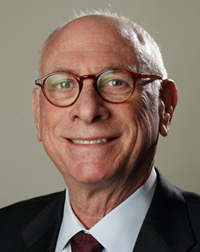Chicago Sun-Times columnist Neil Steinberg distills the religious freedom hyperbole surrounding the Hobby Lobby case, now before the U. S. Supreme Court, and synthesizes what the case is really about: a woman’s civil liberties. Hobby Lobby seeks exemption from the Affordable Care Act which mandates employee- health insurance policies cover contraceptives; it maintains that forcing it to comply would violate the religious beliefs of Hobby Lobby owners and share-holders. In a WTTW interview, Colleen Connell, Executive Director of the ACLU of Illinois, argued that religious freedom issues are not applicable “in this instance” because the company is a profit making corporate entity, not a religious organization. Steinberg’s Sun Times column outlines the country’s historical social progress which, over time, has mitigated the power of employers to control the private lives of their workers and pairs that reality against Hobby Lobby’s oral arguments before the court. Switching religious labels Steinberg surmised:
If a Muslim-owned company tried to insist its female employees wear veils, Hobby Lobby would respond in vibrating horror. Yet it would blithely force its own will on employees. Hypocrites.


